8 Best Vercel Alternatives for Production
Dec. 11, 2024 by @anthonynsimon
Deploying a web app to production can be challenging, but platforms like Vercel make it easier by handling many of the moving parts for you.
However, Vercel may not always the best fit for every project. Sometimes the costs add up too quickly, or its features don’t fully meet your needs.
Below I'll explore eight Vercel alternatives for different use cases - let's dive in.
Why consider Vercel alternatives
Here are some common reasons you might consider other platforms:
- Pricing: Vercel’s free tier is generous, but larger projects can quickly become costly.
- Flexibility: Some developers want more control over their infrastructure or access to the underlying instances.
- Backend-heavy apps: Vercel focuses on frontend apps, which may not work well for CPU-intensive or backend-heavy projects.
- Framework support: If you’re not using Next.js, you might prefer a platform that’s more framework-agnostic.
Check out this guide for insights into pricing factors like data egress.
1. Fly.io
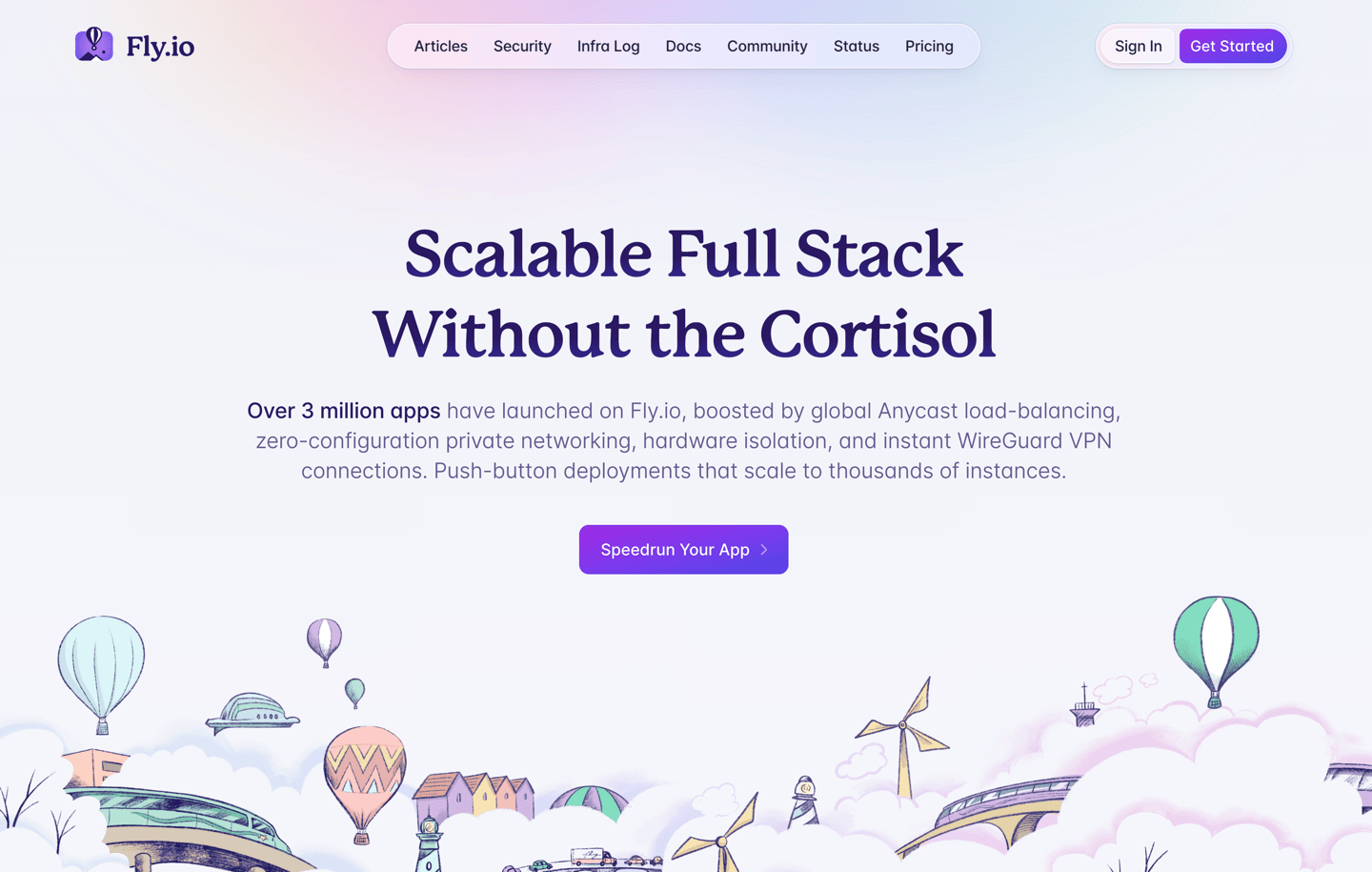
Fly.io automates deploying container-based apps, giving you flexibility while retaining more control over your infrastructure.
Highlights
-
Global hosting: Deploy your app near users worldwide.
-
Backend support: Host your backend alongside your frontend.
-
Scalability: Automatic scaling to handle traffic spikes.
-
Developer tools: Supports Docker and offers a robust CLI.
Pricing
Affordable plans starting at $5/mo, with usage-based pricing.
Use case
Ideal for apps where performance and low latency are critical.
2. Render
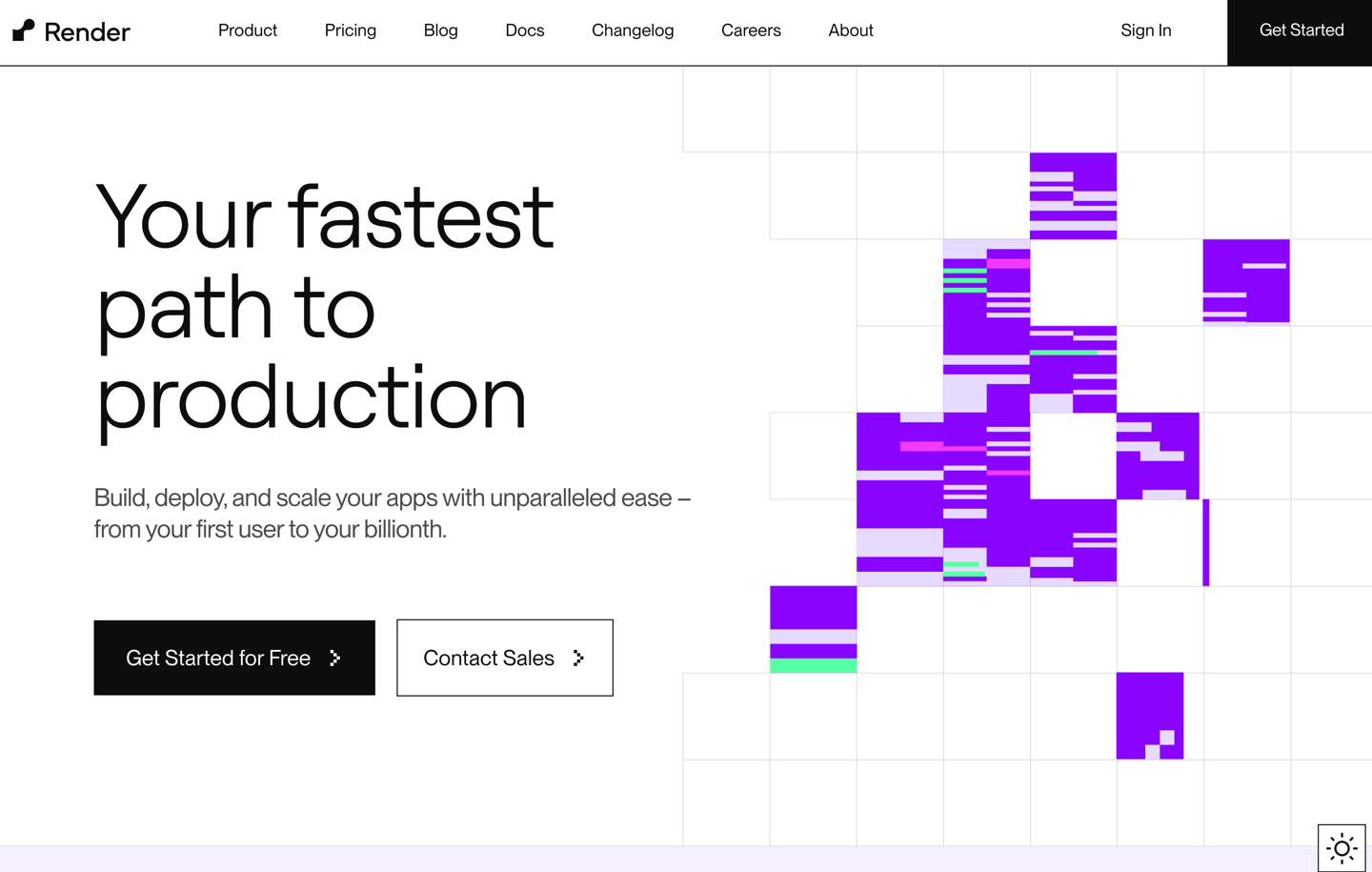
Render provides full-stack hosting that balances ease of use and control. I like to think of it as a more modern Heroku.
Highlights
-
Full-stack hosting: Host both frontend and backend services.
-
Custom domains: Free custom domain setup included.
-
Affordable pricing: Predictable, easy-to-manage costs.
-
Flexibility: Supports Docker containers and various runtimes.
Pricing
Generous free tier and usage-based billing starting at $7/month.
Use case
Great for developers looking for reliable hosting for both frontend and backend projects.
3. Railway
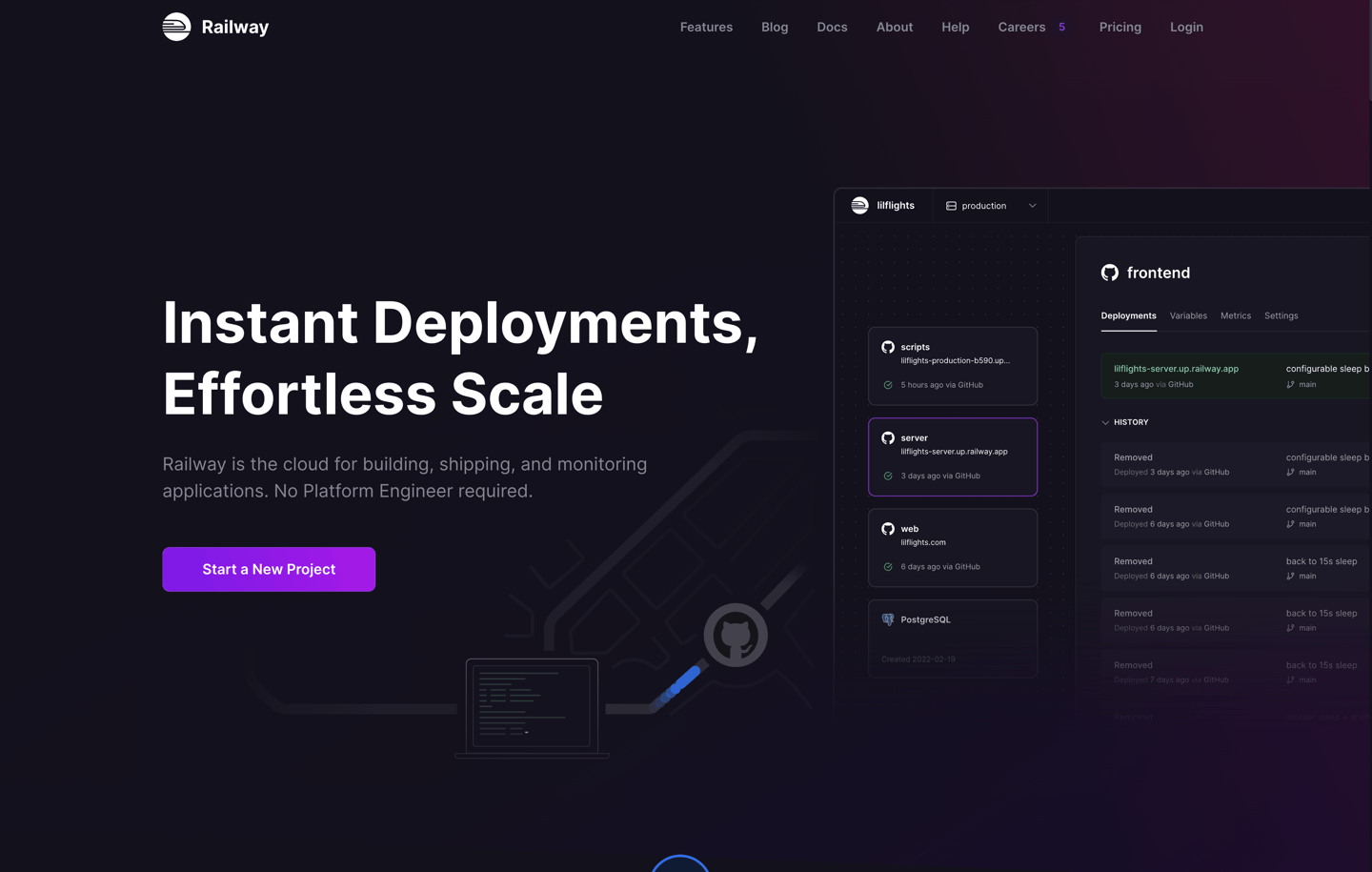
Railway simplifies app deployment with minimal setup required.
Highlights
-
Easy setup: Get your apps up and running quickly.
-
Built-in databases: Built-in support for PostgreSQL, MySQL, and more.
-
Flexibility: Works well for small to medium-sized projects.
Pricing
Usage-based billing starts at $5/month.
Use case
Perfect for fast app deployments with built-in database management.
4. DigitalOcean's App Platform
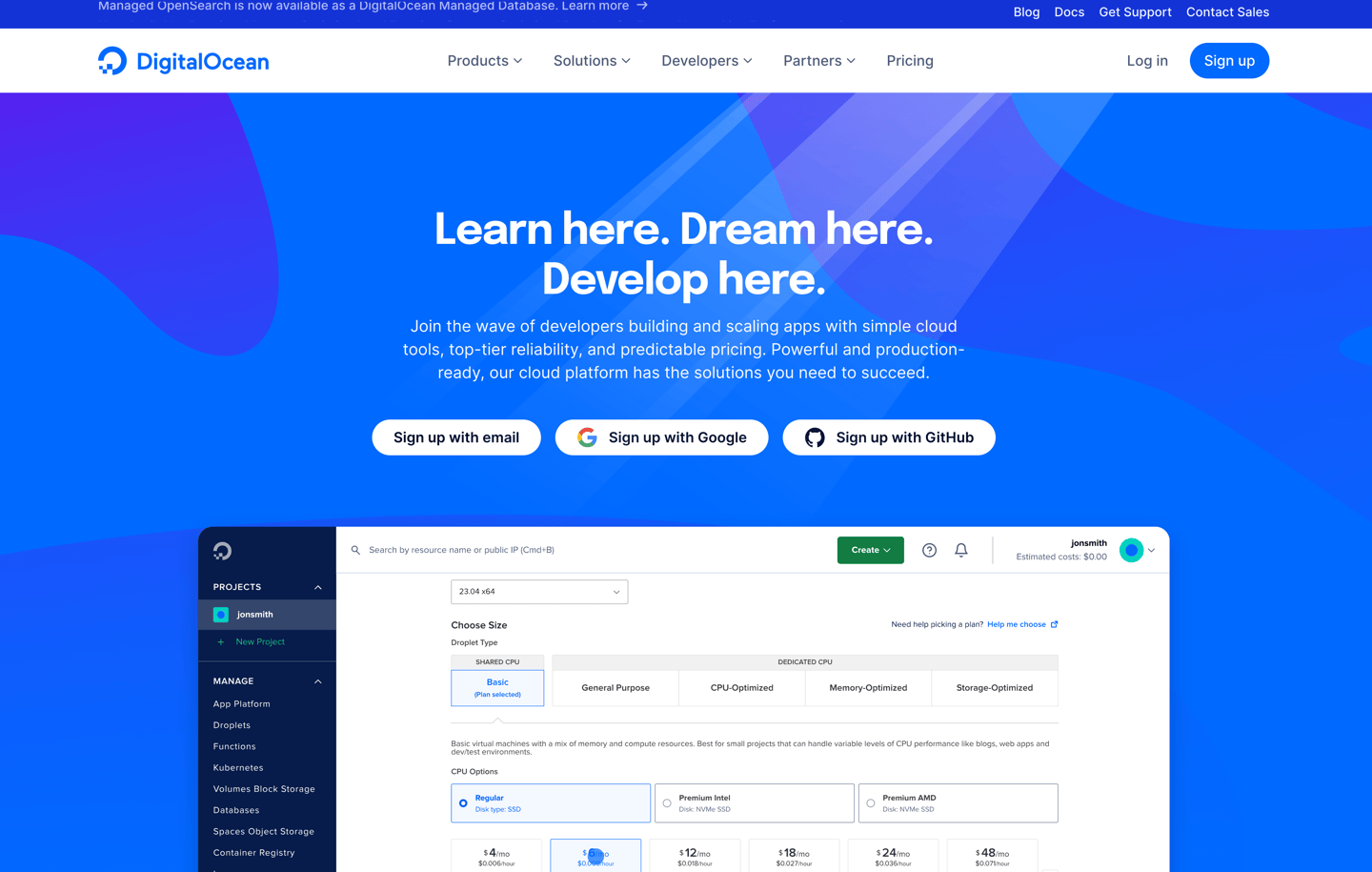
DigitalOcean’s App Platform is user-friendly and budget-conscious.
Highlights
-
Managed hosting: Deploy directly from GitHub or GitLab.
-
Scalability: Automatically scales based on traffic.
-
Ease of use: No server management required.
-
Flexibility: Supports various frameworks and runtimes.
Pricing
App Platform offers a free tier for static sites, with paid plans starting at $5/month.
Use case
Best for developers seeking managed hosting with minimal overhead.
5. Netlify
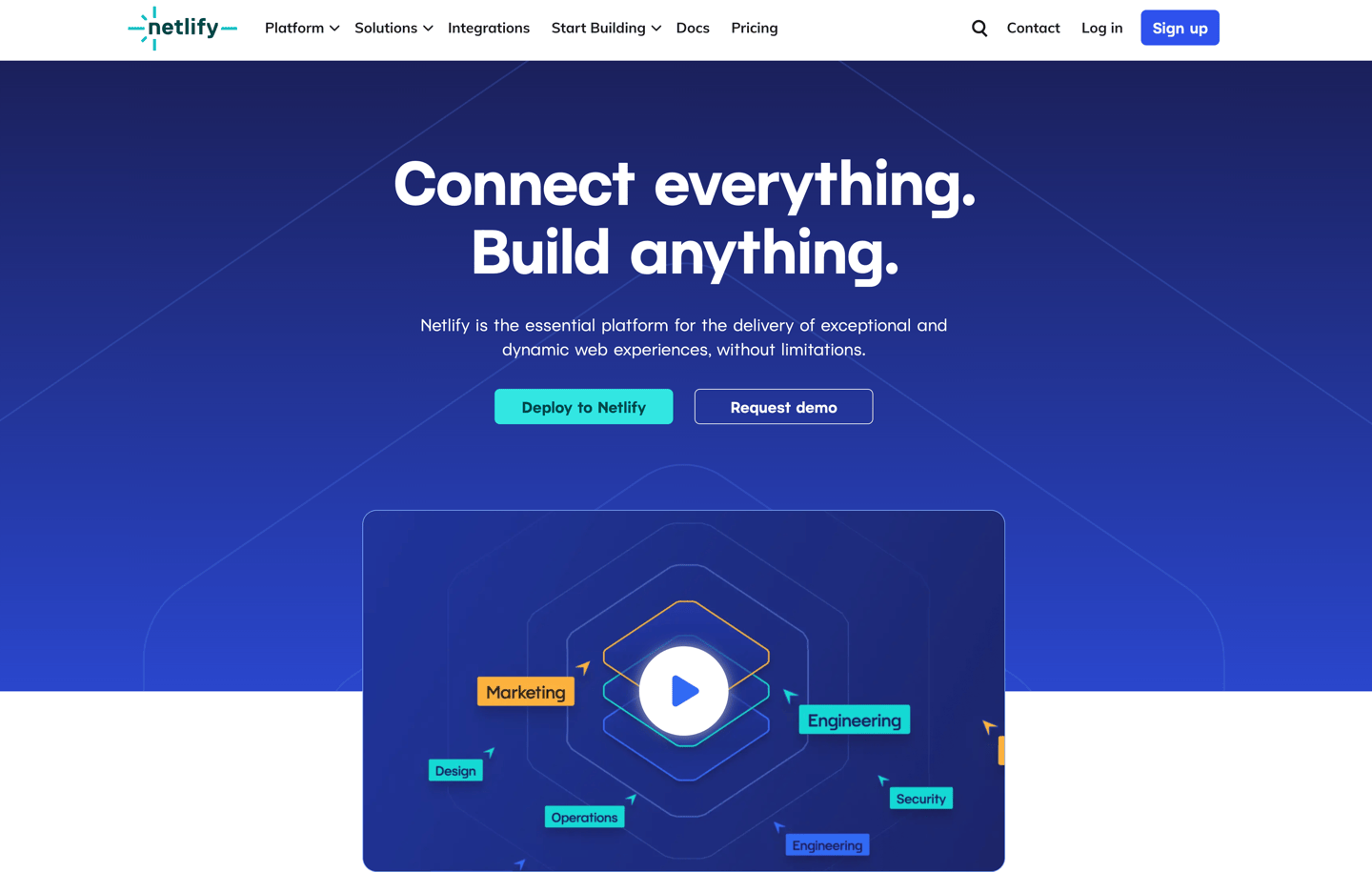
Netlify is another popular platform for frontend developers who need an easy deployment workflow in an enterprise setting.
Highlights
-
Frameworks support: Supports React, Vue, Angular, and more.
-
Serverless functions: Add backend functionality easily.
-
Built-in tools: Includes identity management, form handling, and analytics.
-
Git-based workflows: Enables quick rollbacks and deploy previews.
Pricing
Generous free tier, paid plans start at $19/user/month.
Use case
Great for static sites and JAMstack projects leveraging a serverless architecture.
6. AWS Amplify
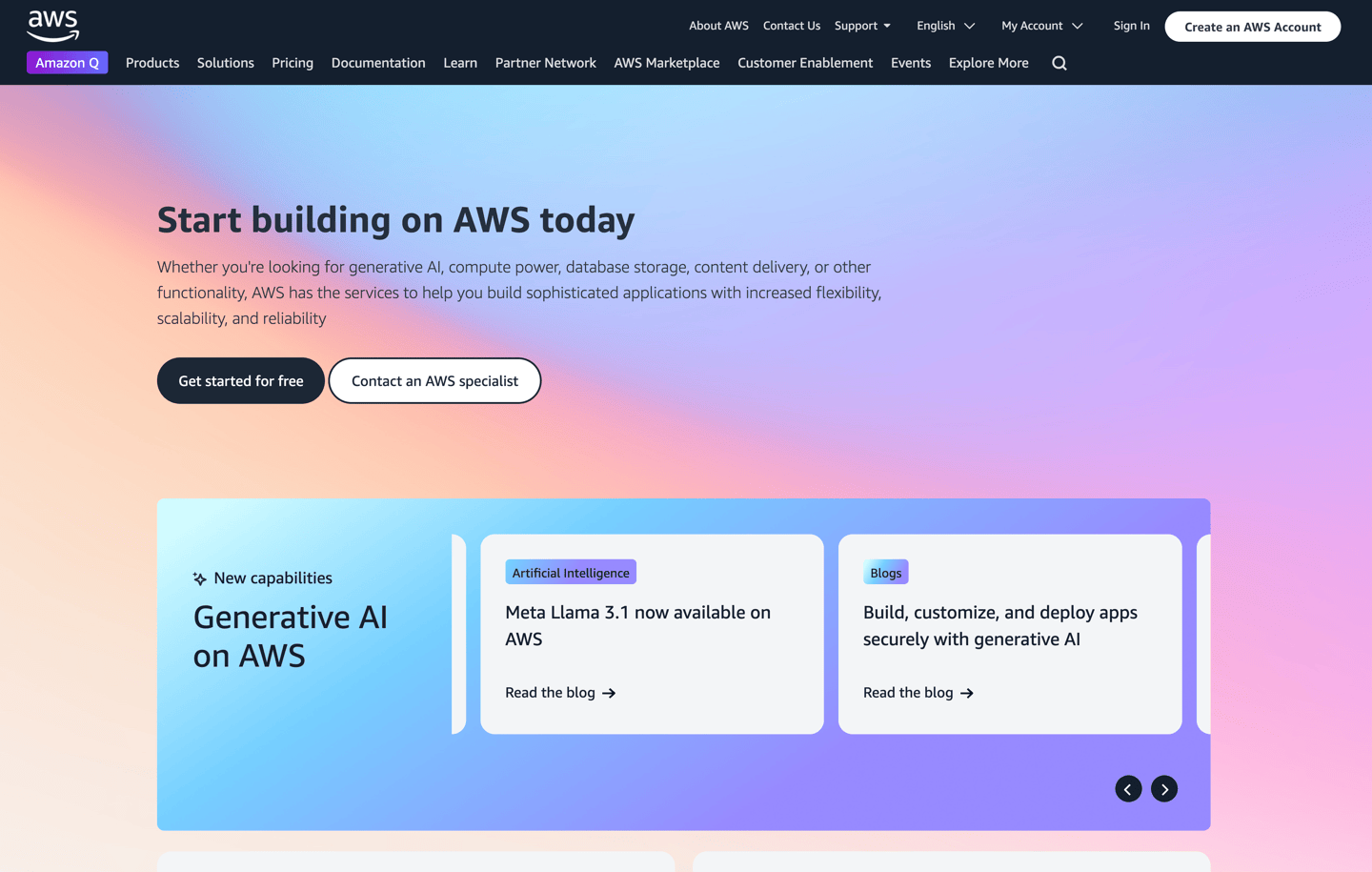
Amplify integrates deeply with the AWS ecosystem, offering a wide range of services for your app.
Highlights
-
Framework-agnostic: Works with Next.js, Nuxt, Angular, and more.
-
Built-in features: Includes authentication, APIs, and storage.
-
Scalability: Supported by AWS’s global infrastructure.
-
Extensive integrations: Connects with other AWS services for advanced use cases.
Pricing
Usage based, with a free tier available for small projects.
Use case
Ideal for projects that leverage a deeper integration with AWS.
7. Koyeb
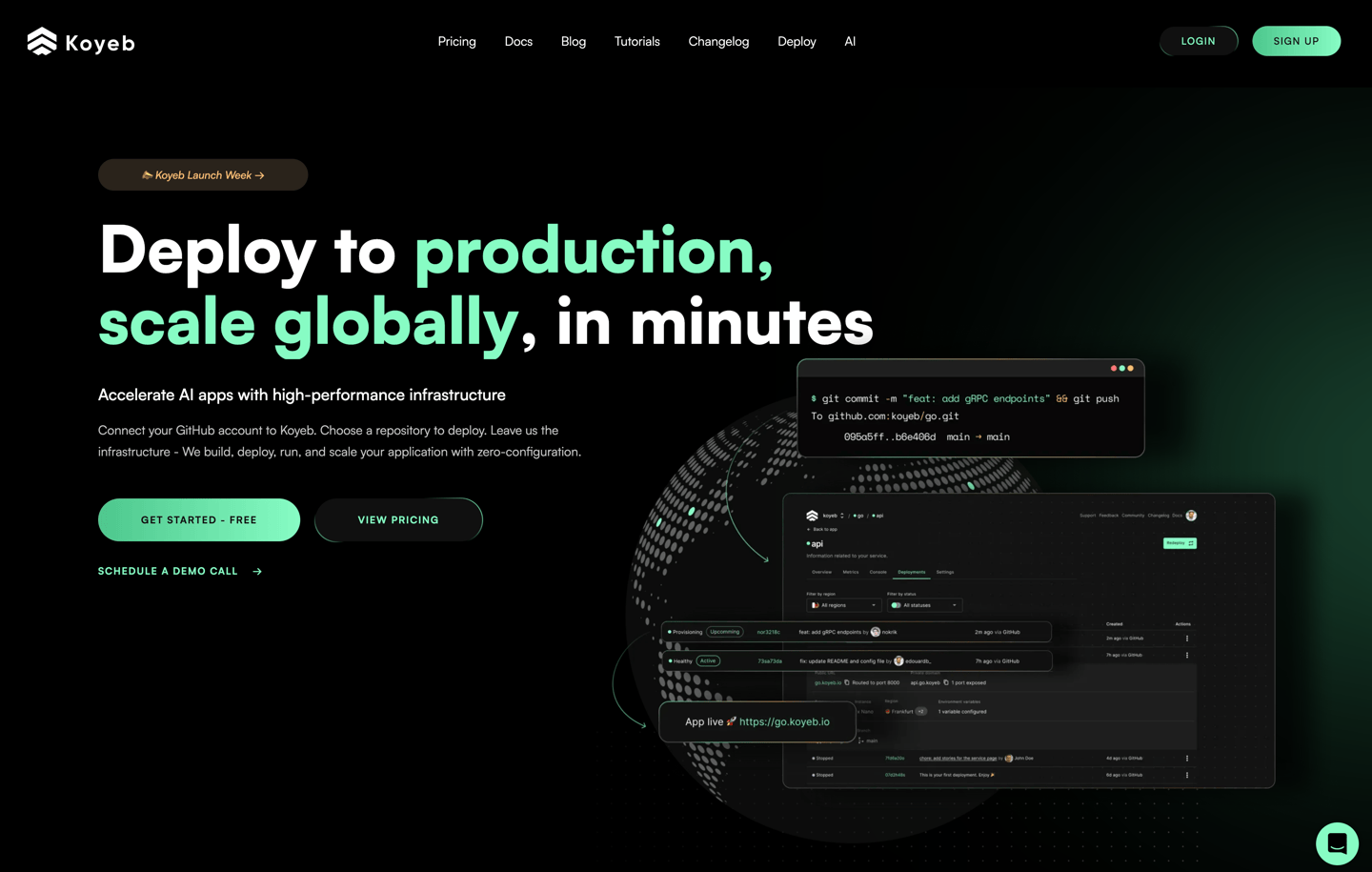
Koyeb focuses on simplicity and speed for serverless apps.
Highlights
-
Serverless edge hosting: Deploy apps globally within minutes.
-
Built-in tools: Includes automated SSL, API gateway, and storage integration.
-
Ease of use: Requires minimal setup.
Pricing
Free tier available, with usage-based billing once you exceed the free tier.
Use case
Great for serverless applications with global distribution.
8. Scaleway
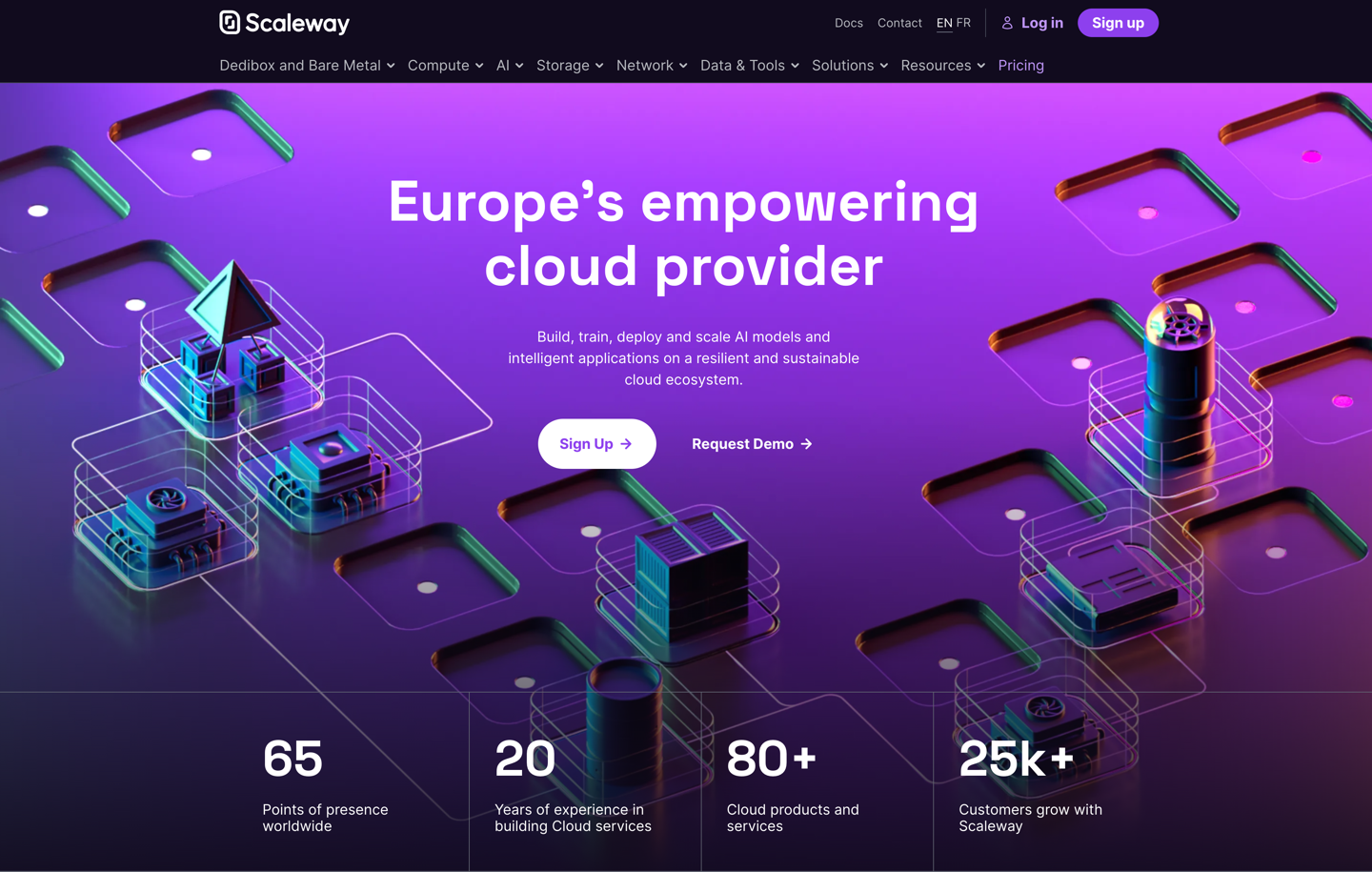
Scaleway offers a wide range of managed services at competitive prices.
Highlights
-
Comprehensive infrastructure: Includes Kubernetes, serverless options, virtual machines, and even GPUs.
-
European cloud & data centers: May ease GDPR compliance depending on your project.
-
Easy to use: Their dashboard is easy to use, and offers a wide range of managed services.
Pricing
Usage-based pricing with server options starting at approx. €3.35/month.
Use case
Ideal for developers looking for a cloud provider based in Europe offering a wide range of managed services.
Bonus: The DIY option
If you're comfortable rolling up your sleeves and managing a server, self-hosting is always an alternative. You'd be free to use tools like Docker and Kubernetes, or any cloud provider you like to run your app.
Costs vary based on the provider and resources used, but the total cost to host your project could be as low as $5/month (app, workers, database and cache, all in one instance), and you can scale horizontally or vertically as needed.
If you're interested in this, also check out our guide on deploying Next.js to a VPS. It's a step-by-step guide including automatically deploying your Next.js app on git push using GitHub Actions.
Conclusion
Choosing the right deployment platform depends on your project’s needs.
Whether you prioritize speed, affordability, or flexibility, these Vercel alternatives cover a wide range of needs. From managed services like Fly.io and Render to fully in control with self-hosting - there's a tool for every use project.
Still not sure? You can use our website to compare cloud providers and find the right fit for your project.
